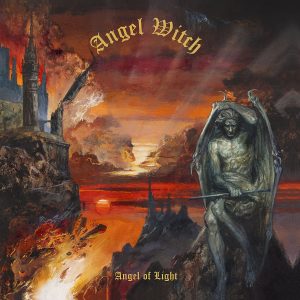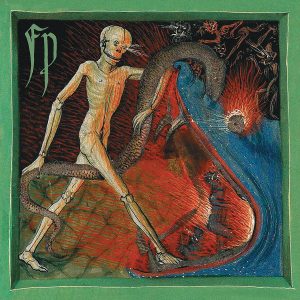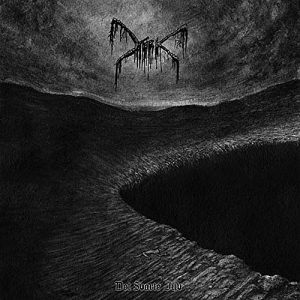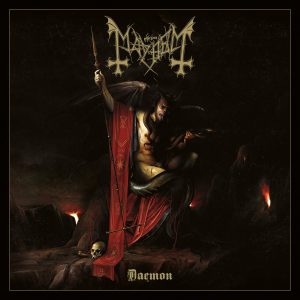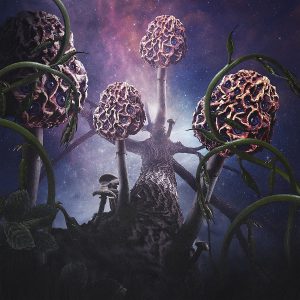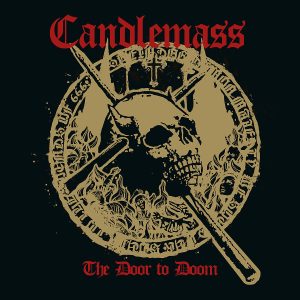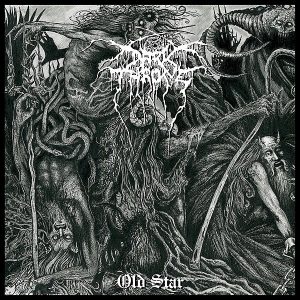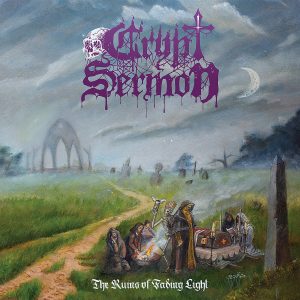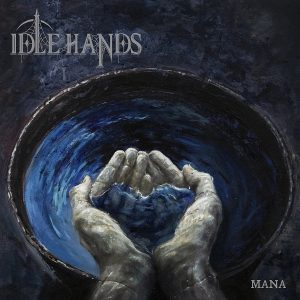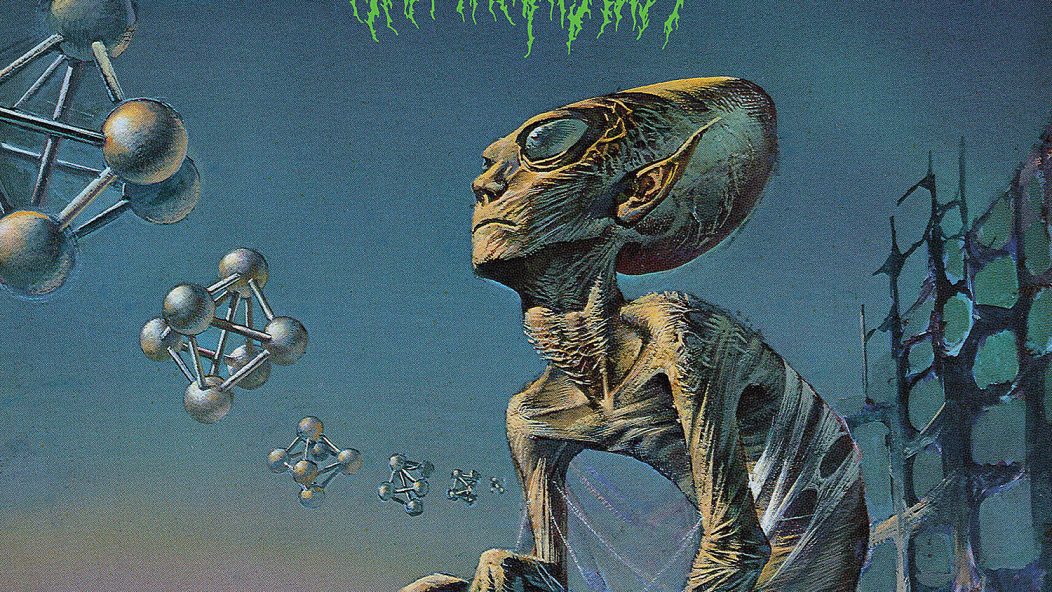
Joseph Aprill's Top Albums of 2019
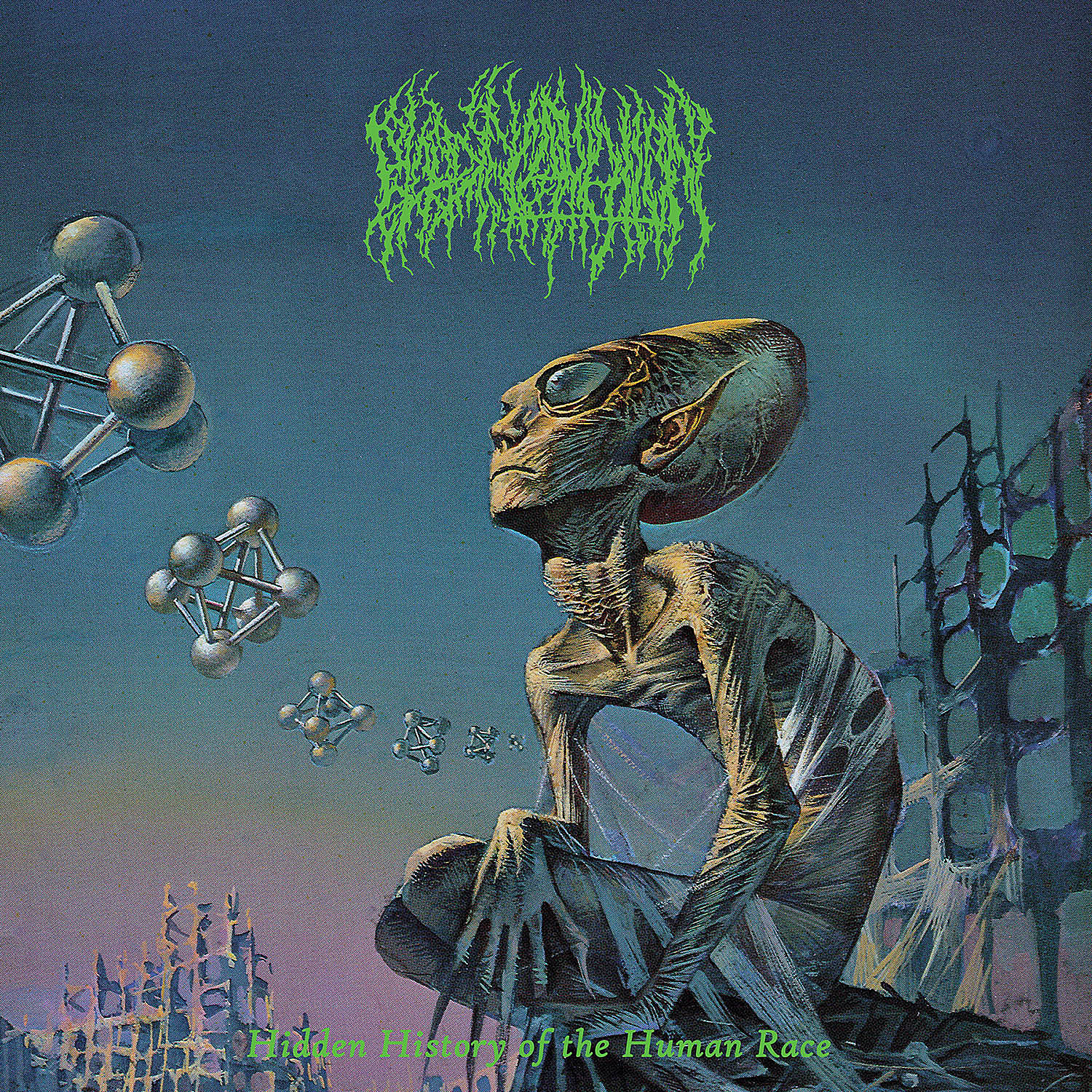
…
It’s been an absolute pleasure coming on board as a writer with Invisible Oranges this year after a long pause in any journalistic pursuits. It would have been an even sooner return were it not for my first pitched interview falling apart back in February. I was originally supposed to meet in person film director Jonas Åkerlund for an interview on his Mayhem and early Norwegian Black Metal biopic Lords of Chaos. What I didn’t anticipate was receiving a wild-goose chase where one plan got canceled for another, where an in-person interview became over the phone until finally Åkerlund’s representatives said he just didn’t have the time. Such was my unfortunate luck, but in the end it helped me create the beginning of a relationship with the staff of Invisible Oranges and, in time, becoming a closer part of it.
Eventually what pushed me into getting my words published was meeting up with Invisible Oranges and Brooklyn Vegan staff at this year’s Psycho Las Vegas festival where I got to conduct my first interview for the site with Thomas Eriksen of Mork. While Las Vegas isn’t a great distance from my home in Los Angeles, the situation certainly reinforced my perception that my many travels domestic and international have always given fruit to some of my strongest friendships and opportunities in the metal community. This year alone, I had the opportunity to travel to Europe twice, first making a maiden trip to Gothenburg to attend the Abyss Festival and, immediately after Psycho Las Vegas, flying out to Bergen for my third visit to the beautifully sleepy city on fjords to witness the Beyond the Gates festival.
Not only traveling these great distances to headbang in front of legendary bands unlikely to play closer to home, but as mentioned before, to make new lifelong friends and reconvene in person with old ones for perhaps the only time that year — this all added to the opportunity to talk to some of these bands for the benefit of Invisible Oranges readers. Rest assured I’m already making plans for next year.
Before getting to metal, I wanted to spend a bit of space to likewise recommend some fantastic films released this year. Having started the “Heavy Metal Movie Madness” column rolling along with the intent to continue it, I think it appropriate I include here some excellent films that likewise brought me wonder and delight, so here’s an inordinate list of my top five movies of the year.
”Once Upon A Time In… Hollywood” directed by Quentin Tarantino. A love-letter to the Hollywood of Tarantino’s childhood that stylishly tells a story of waning actors and rising stars all barreling toward one of the darkest days in the illustrious town’s history. Surprisingly, one of Tarantino’s least overtly violent films but when things do get rough, oh boy, do they ever in explosive fashion.
”Midsommar” directed by Ari Aster. A modern vision of the cult subgenre of terror in folk horror that takes the audience through some very uncomfortable explorations of grief, community, psychotropic drugs, and sacrifice. I included the movie in my first piece for the Heavy Metal Movie Madness column earlier this year along with 1973’s “The Wicker Man.”
”Jojo Rabbit” directed by Taika Waititi. A satirical black comedy about Nazi Germany from the eyes of a ten-year-old Hitler Youth with an imaginary in Adolf Hitler who has his world turned upside down after discovering a secret his mother is keeping. The famous “Thor: Ragnarok” director balances knee slapping humor and deep pathos in this bizarre and beautiful tale. I’m not afraid to admit a couple scenes brought tears to my eyes.
Parasite directed by Bong Joon-Ho. He delivers perhaps the greatest work of his career that already delivered masterpieces from the murder trail of 1980s rural Korea to dystopian science fiction using trains as gnosticism metaphors. Parasite is a culmination of Joon-Ho’s meticulously detailed work detailing the tragicomic intersection of two families from different classes that doesn’t waste a moment in visual storytelling.
The Lighthouse directed by Robert Eggers. The famed director of 2016’s The Witch, perhaps one of the greatest horror movies of the decade, returned with a unique visually experience as if transporting the horror of 1920’s German Expressionism onto the modern screen. On a lone rock an isolated late-19th Century lighthouse shelters an old barnacle of a sailor and his young apprentice as they start losing their wits either from cabin fever or something far more mysterious.
— Joseph Aprill
…
Honorable Mentions
Abbath – Outstrider (Season of Mist, Norway)
Devil Master – Satan Spits on Children of Light (Relapse Records, USA)
The Deathtrip – Demon Solar Totem (Profound Lore Records, UK/Norway)
Tomb Mold – Planetary Clairvoyance (20 Buck Spin, USA)
The Lord Weird Slough Feg – New Organon (Cruz del Sur Music, USA)
Gaahls Wyrd – GastiR – Ghosts Invited (Season of Mist, Norway)
Vircolac – Masque (Sepulchral Voice Records, Ireland)
Misþyrming – Algleymi (Norma Evangelium Diaboli, Iceland)
GosT – Valediction (Century Media Records, USA)
Sarke – Gastwerso (Indie Recordings, Norway)
…
While interviewing Angel Witch’s mastermind/guitarist/vocalist Kevin Keybourne and bassist Will Palmer I praised their latest release saying:
[L]ike many a myth of old, Angel Witch rose from the ashes creating 2012’s comeback As Above, So Below and now their latest release some seven years later for Metal Blade records, Angel of Light. While the previous record was thoroughly enjoyable with red-hot moments of metal glory, it also had a few tracks that felt out of place or seemed to mess the momentum of the album. Such issues are absolutely absent on Angel of Light’s infectious eight tracks. Every song works well on its own or combined with the album whether it’s the lead-off headbang from the gunshot single “Don’t Turn Your Back” or the doomy yet vocally melodic march of “I am Infamy.” The sound of the album is warm and organic just like the pre-computer dominated studio era of metal classics Angel Witch helped forge while never feeling dated or poorly produced. Special mention has to be given to Kevin Heybourne’s vocals which some 40 years later have matured like wine rather than having been destroyed by the ravages of aging. Heybourne truly is a master at intertwining the gruff melody in his voice with the honed songwriting and command with the power of a damn good guitar riff.
I’ve been a big fan of Mattias Müller’s, otherwise known as Bestial Devotion, other band Negative Plane for a while; in the meantime of waiting for what seems like an eternity for a new release, Müller has put out two solo albums under the title of Funereal Presence. His latest in Achatius continues on a sound compositional approach not dissimilar to Negative Plane but unique flourishes are certainly illuminated throughout. Like its predecessor, the album is drenched in a medieval atmosphere with musical nods to metal’s own history all orchestrated through Müller’s incessant ability to craft riff upon riff into a blasphemous tapestry. Early Darkthrone meets the hot licks of Mercyful Fate, the driving aggression of Germanic thrash metal’s beginnings, and the occult mysteries drawn from black metal’s first wave in Eastern Europe. The experience is just as time-warpingly mystical as it is headbangingly furious.
I’ve been in love with black metal, and Norwegian black metal, since my adolescence, but for quite a while I felt Norway wasn’t providing the best quality, at least in the case of new blood. That’s changed in recent years, with a number of exciting acts which includes Mork and their rather exceptional rise in the scene (check out my interview). Det Svarte Juv continues mastermind Thomas Eriksen’s penchant for taking some of the best elements of his country’s scene’s legacy while giving it his own individual character. According to Eriksen, the recording of the album was a dark time for him filled with a great deal of personal tragedy and darkness. The album certainly reflects these moods, but it’s also at times uplifting when hearing the clean vocals soaring to the sky or guitar melodies that make you weep from their beauty. Det Svarte Juv then is another testament to “Norwegian Black Metal” in the truest sense: whether forming the perfect soundtrack to a lone journey through a dense wood or banging your head at the guardrail with horns held up high.
You know you really love a new album when you look forward to hearing songs from it the next time you see the band live rather than being in the typically default mode of only wanting to hear the classic tracks you grew up with. That’s exactly the case with Mayhem’s newest ritual in Daemon which I’m super fucking stoked to see them deliver with performing these new tracks while headling next year’s Decibel Tour. When interviewing Mayhem’s guitarist Teloch, I mentioned my own thoughts on Daemon, saying:
This time the resulting album is a pursuit not of cold inhuman futures but of blood soaked demonic forces. Daemon is an album that stands tall with the work of contemporaries like Watain and Funeral Mist who have long shown black metal can still carry an overwhelming feeling of evil while not relying upon only the past. Italian artist Daniel Valeriani’s cover art perfectly embodies the current spirit of Mayhem, ancient evil given vibrant flesh in a manner not possible for the past to have conceived. Posthuman abstraction has given way to pure fucking armageddon, only now with the conviction of time and experience ruling over the blind exuberance of youth.
Before a note of music was heard from Blut Aus Nord’s 13th full-length, the metal underground was buzzed by what hints the band had given in, announcing it a stylistic shift into a new era for the band. The album’s name itself, Hallucinogen, along with the cover art of eye-dotted magic mushrooms towering like a redwood tree up to the cosmos, conveyed a turn toward the psychedelic which was never a full association before with the band. Some were disappointed when the album finally dropped into their digital laps, feeling their expectations of Oranssi Pazuzu-esque astral jamming avoided but in the context of Blut Aus Nord’s history. I think the change is real, only a more subtle one. One can hear in Hallucinogen the epic bombast of the Memoria Vetusta trilogy paired with the crystalline production and grand gothic atmosphere of the 777 trilogy, most especially found on that cycle’s climax on Cosmosophy. The ever-entwining melodies that previously transported listeners to mythical wooded lands is now used to conjure journeys beyond the limitations of the terrestrial plane and the human mind. All with a propulsive energy recalling an evolved form of the psychedelic rock legends Hawkwind in tracks like “Mahagma” and “Nomos Nebuleam,” the latter of which perhaps being my favorite song of the year.
Candlemass early work holds a very dear and close spot in my metal devotion, particularly their debut Epicus Doomicus Metallicus, which conjures a sort of arcane magic that very few acts have ever tapped. When I heard that a key element of that record, original vocalist Johan Längquist, who appeared only on one album before particularly leaving the metal world altogether, had me sitting on a razor’s edge of anticipation. The result in Candlemass’ 12th album in The Door to Doom admittedly is not a direct sequel of their epic doom genre spawning debut but it is perhaps the best thing they’ve done since their glory days in the 1980s. Band leader and main songwriter Leif Edling has composed a powerful slab of doom metal that particularly resonates with the Dio-era Black Sabbath, allowing Längquist, whose voice has aged majestically, to soar and wail with overflowing emotion. Much as I love as well the Messiah Marcolin era of Candlemass, The Door to Doom tempts me to wish Längquist had never left the fold.
Like so many other legendary bands, the illustrious Motörhead certainly fitting the bill, what is there left to really say when a new Darkthrone album smacks you in the face? Nothing other than command all to bang their heads or leave the hall as poseurs. Diehard metal-lifer hypoberole aside, while Darkthrone have evolved (or devolve to some) over time, this certainly isn’t the start for out-of-the-blue surprises on their 18th album in nearly 30 years called Old Star. I will say Arctic Thunder wasn’t a personal favorite, with it being a bit too overly slow paced, whereas nowadays Darkthrone, while not abandoning the grim doom certainly, this time spices it up with healthy portions of heavy metal gallop and neck thrashing pace. Darkthrone will always make music for themselves, but damn is it ever a joy when that sweet spot of metal bliss where everything fades except the music and you.
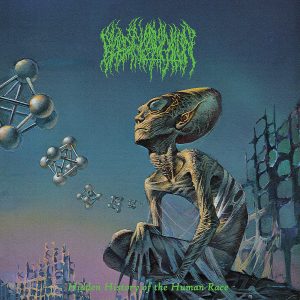
While I love death metal, I know I can be a picky bastard in general and find new offerings easier to brush aside than, say, with other genres like black or doom metal. That said, how could anyone not miss this meteorite of earth-shaking magnitude with the potential to destroy all that stands in its way? After communing with the aliens via psychotropic means translated through gamma radiated technical proficiency, one of death metal’s greatest young stars have delivered Hidden History of the Human Race. Now, I should warn that I do fear the hype around this album might prompt me to be abducted by said aliens as am willing to admit I still prefer the band’s debut Starspawn, which isn’t to say I don’t like this album, as it is my third favorite of the year after all. Moreover, it shows just what an amazing band Blood Incantation are, whose gravitational force seemingly has no end in sight for the metal scene at large.
So yeah, we’re all good with the aliens… right? Right?!
I had been a moderately enthusiastic fan previously of Crypt Sermon’s, enjoying their debut slice of American epic doom metal while catching them a couple times live. I could tell they had something special but not quite fully realized. An early sign of greater things to expect came in 2017 with a Decibel flexi-disc release containing a cover of Mayhem’s epic album closer “De Mysteriis Dom Sathanas” [the cover, in cheeky fashion, replacing dom with doom]. It truly blew me away. The satanic darkness of the tune had been reconstructed into the epic doom format in such perfection it had me listening to that one song over and over as if hoping a river of albums in that vein would somehow emerge. This year, Crypt Sermon took the next step in The Ruins of Fading Light, which, while not exactly being a continuation of that beloved cover song, certainly shows a clear influence from it, along with altogether further development into a more formidable band. The band is still epic doom metal to its core, but a great deal of the album’s pace and bravado lends it to a far more classic heavy metal atmosphere. At times, guitarist Steve Jansson’s riffing and songcraft invokes memories of King Diamond or Iced Earth’s metallic heights particularly on songs like “Key of Solomon” and “The Snake Handler,” the latter having easily one of the best guitar solos of the year while the former oozes occult darkness with lyrics like, “Signs and sigils / Painted on the floor / Blood and sinew / Open up the door.” Of course, the most distinctive element of Crypt Sermon’s spell is vocalist Brooks Wilson’s rather unique singing. His voice is fully confident and right in the forefront of the music where emotional resonance, tapping into what feels like even non-metal influences, lifting the instrumental compositions into another plain of grandeur.
I originally planned to have Crypt Sermon in the top spot but thought it over for a bit, asking myself, “Which album from this year deep down gives you the most joy?” The answer came with no further hesitation, like a cloud of uncertainty and double-guessing evaporating. What was left was Mana, the debut album of Portland’s sunglasses-at-night-heavy-metal upstarts Idle Hands. I’m certainly not the only one to have found something so supremely joyful in the darkness, with Idle Hands considering their rather stratospheric rise after being born from the ashes of Spellcaster. They’ve found themselves opening for metal titans like Tribulation and King Diamond, while next year is bringing opportunity under the wings of Mayhem, Abbath, and even playing festivals on the same stage with the newly reformed Mercyful Fate.
The magic cast by Idle Hands’ leader Gabriel Franco, along with the rest of the band, is what at first glance feels like a perfect marriage of classic 1980s heavy metal and the similar timed era of goth-rock legends like The Sisters of Mercy. What’s surprising though is discovering, as I did when interviewing Franco earlier this year, that the later associations are purely coincidental when he was composing Mana. The goth-rock vibe, when analyzed, is in one part likely due to Franco’s powerful baritone voice, often more common in the later genre than the tenor dominated halls of classic heavy metal vocalists. The other part is how emotively Franco sings his romantic lyrics about angst born from lost love and life, again something that fits like a glove in goth rock. Considering Franco is the main songwriter for the band, and it makes sense that instrumentally the album fits dark and sorrowful feel of not only his voice but the words as well.
Franco had a great bit in my interview quoting from Iggy Pop in a documentary saying he didn’t wish to belong to any particular musical scene. Iggy Pop wanted to just be himself, and that hit a strong truth for Franco, which I think isn’t to say genres have no use to anyone, but it does mean, as an artist, one shouldn’t limit themselves in terms of what influences to take and the methodology of pursuing their art. It looks like Idle Hands will be such a band keeping no chains upon themselves and we will be the fortunate recipients of the joys and sorrows woven into their art.
